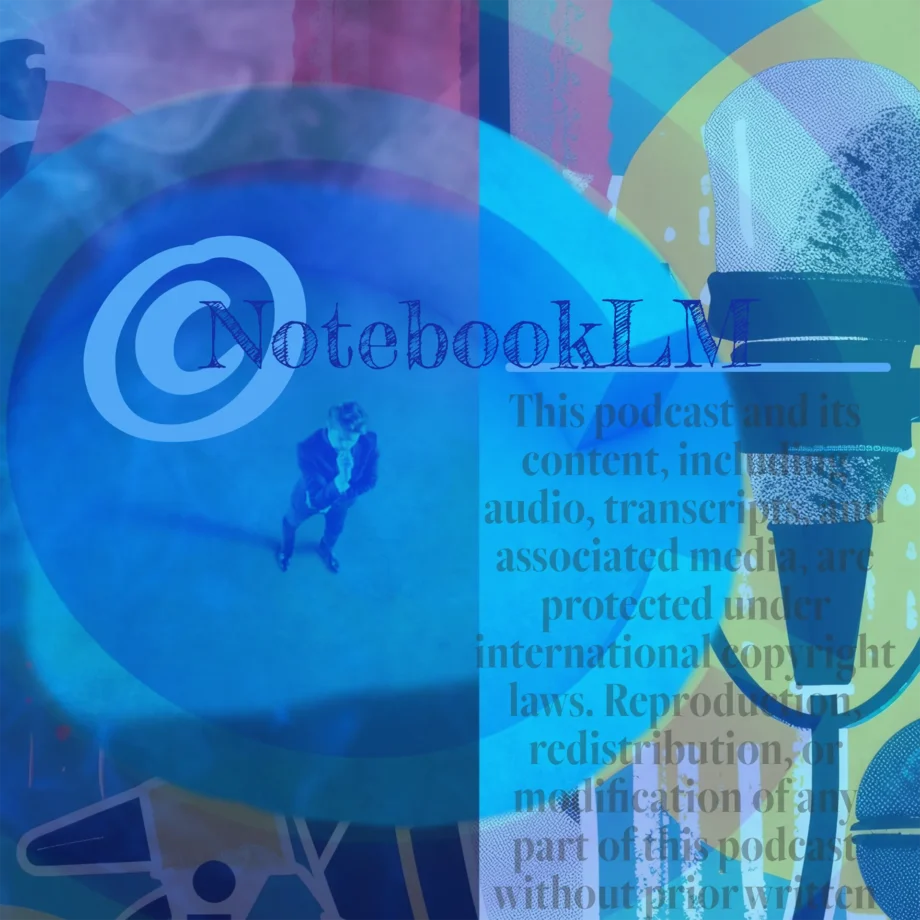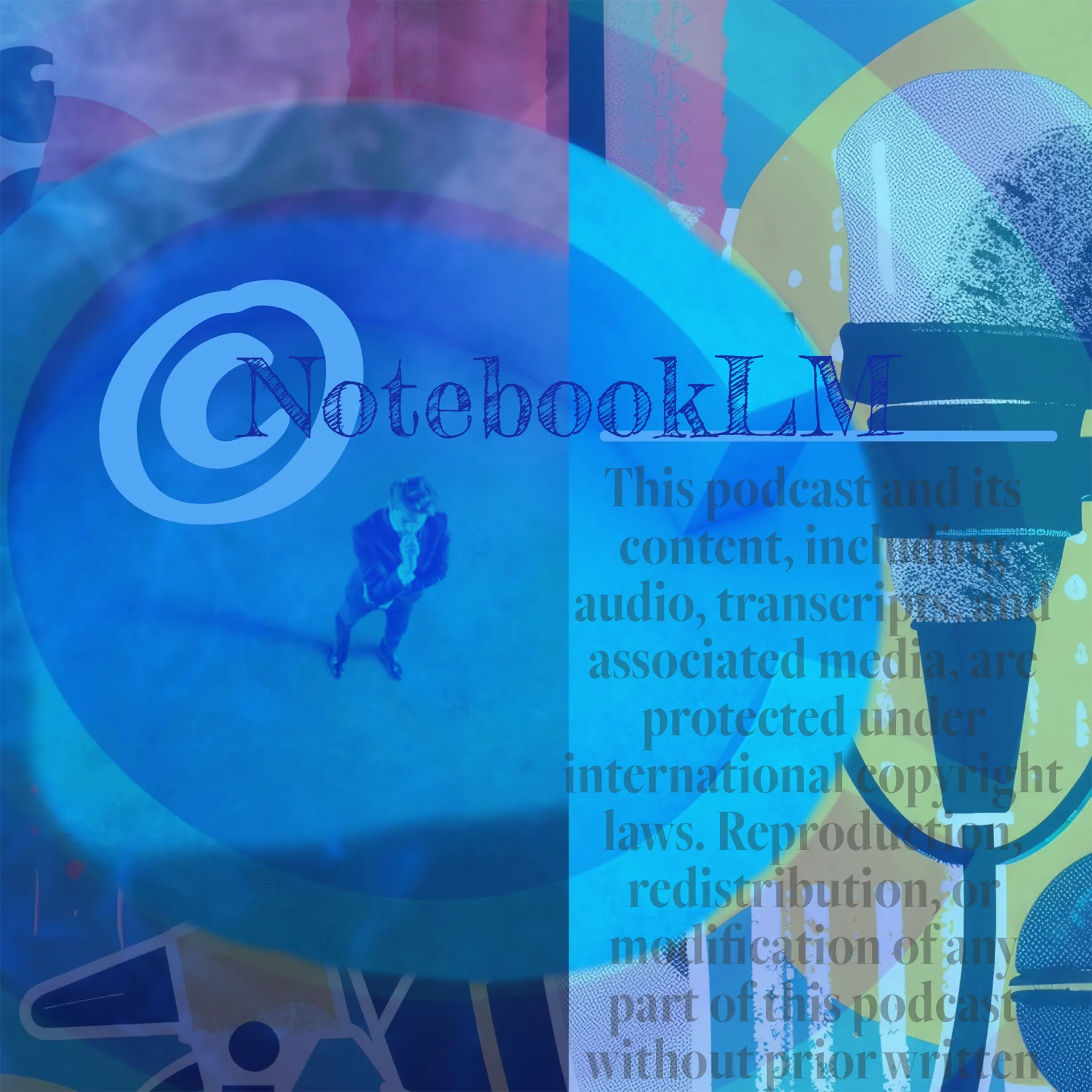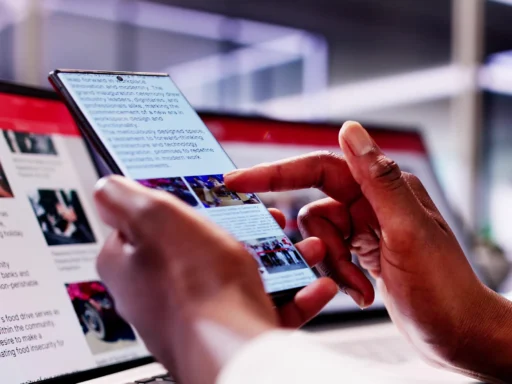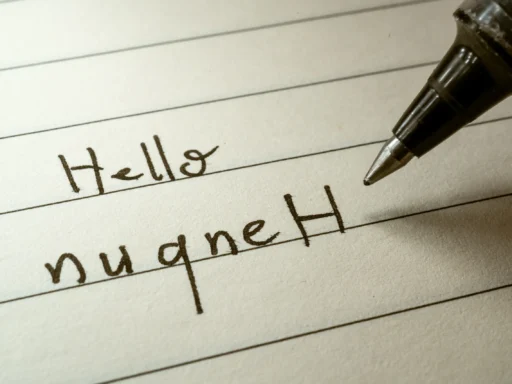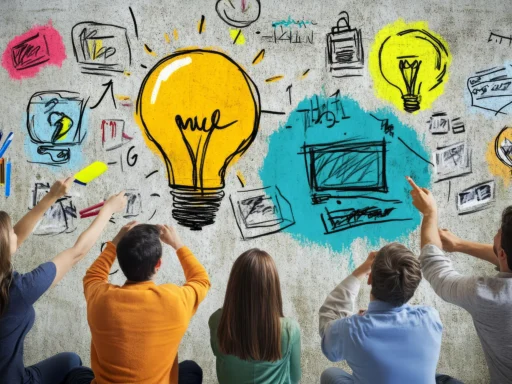Creating a podcast using Google’s NotebookLM with content you own raises important questions about copyright ownership. Can you legally claim copyright over such a podcast? This article examines this question based on Google’s Terms and Conditions applicable in India.
NotebookLM explicitly states that Google’s Terms of Service apply to its use. When you interact with NotebookLM, Google’s policies govern how your content and data are handled.
Podcast Copyright and Ownership with NotebookLM
According to Google’s Terms and Conditions for users in India, you retain ownership of any intellectual property rights you hold in the content you create, upload, submit, store, send, receive, or share using Google services. This includes content generated with the assistance of AI tools like NotebookLM.
Key Copyright Considerations:
- Your Rights Remain Yours: Using NotebookLM does not transfer ownership of your content to Google.
- AI Assistance: Content created with AI assistance is still considered your original work, provided you contribute significant creative input.
Google’s Licence Requirements
While you retain ownership, Google’s terms require you to grant them a licence to use your content. This licence allows Google to operate, promote, and improve their services.
Scope of Google’s Licence
- Scope: A worldwide, non-exclusive licence to use, host, store, reproduce, modify, create derivative works, communicate, publish, publicly perform, and distribute your content.
- Purpose: Limited to operating and improving Google’s services, not for commercial exploitation of your content beyond this scope.
NotebookLM Privacy Considerations
For details on how Google handles your data when you interact with NotebookLM, refer to their Privacy Policy.
Account-Specific Privacy and Review Policies
- Consumer Accounts: If you provide feedback while logged in with a consumer Google account, human reviewers may review your queries, uploads, and the model’s responses to troubleshoot, address abuse, or make improvements.
- Google Workspace or Education Accounts: Your uploads, queries, and the model’s responses will not be reviewed by human reviewers and will not be used to train AI models.
How Google’s Terms Affect Your Podcast Copyright
Given these terms:
- You Can Claim Copyright: You retain copyright over your podcast created with NotebookLM using your own content.
- Google’s Licence is Limited: Google’s rights to your content are limited to service operation and improvement.
- Ensure Originality: Incorporate significant original input to strengthen your copyright claim, especially since AI-generated content can present legal complexities.
You Own the Copyright on Podcasts Created with NotebookLM, Not Google
This is an extended version of the original article, updated on 04 December 2024, prepared to address recurring misconceptions regarding copyright ownership and Google’s licence requirements for content created using NotebookLM. At Unlocking NotebookLM, we have observed that these misunderstandings have stemmed from two key sources: a lack of familiarity with basic intellectual property laws and recent discussions highlighting uncertainties about AI-generated content.
Firstly, our original article on Google’s licence requirements was sometimes misinterpreted to suggest that users must give up their copyright to Google, leading to a misconception that individuals are at the mercy of large corporations. This misinterpretation often stems from not fully understanding how intellectual property rights apply when AI tools are involved.
Compounding this confusion, a recent Reddit discussion has brought further attention to the questions around using NotebookLM-generated podcast audio for commercial purposes, privacy, and fair use. One user expressed concerns about maintaining anonymity while sharing messages, emphasizing how big corporations are often the ones profiting off AI while individuals remain uncertain about the legality of their actions. Another commenter confidently claimed that “AI-generated material is not protected by copyright law,” dismissing the concept of copyright entirely.
While such sentiments may resonate with users frustrated by the complexities of copyright in the age of AI, the legal reality is more nuanced. Copyright law around AI-generated content depends significantly on the level of human contribution. Ignoring this critical aspect can leave creators vulnerable to potential legal consequences.
To ensure clarity, let’s revisit Google’s licence requirements alongside the core issues involved in claiming copyright for AI-assisted content like podcasts.
Understanding Ownership and Licence Rights
If you create a podcast with NotebookLM, the copyright for that podcast remains entirely with you, provided you contribute significant original input. The AI tool is simply assisting you in the creative process—it does not claim ownership over the content you generate. NotebookLM functions as a facilitator, much like a pen or a word processor, allowing you to produce content more effectively.
However, to operate effectively, Google’s services require you to grant a licence to process and deliver your content. This licence does not mean ownership shifts to Google. Instead, it is a technical requirement allowing the service to function.
A simple analogy can help clarify this: Imagine boarding a cruise ship. For the operator to serve you, you must allow them to carry your luggage, prepare meals, and provide other services. This does not mean they own your belongings; it simply enables them to fulfil their role during the journey. Similarly, the licence you grant to Google is limited to actions like storing, processing, and reproducing your content within the scope of delivering its services to you.
Google’s licence is explicitly non-exclusive and worldwide in scope. While it permits actions necessary for service delivery and improvement, it does not extend to commercial exploitation of your content beyond the operation of its services.
Legal Obligations for NotebookLM Users
Creating content with AI tools like NotebookLM brings additional responsibilities. Firstly, you must ensure that your podcast content complies with copyright laws. For instance, uploading a third-party YouTube travel video without permission and using it to generate content for your podcast would constitute copyright infringement.
Additionally, you must comply with:
- Google’s Terms of Service, which govern the use of all their platforms, including NotebookLM.
- The Generative AI Policy. This policy serves as a placeholder until NotebookLM-specific terms are introduced with the expected rollout of NotebookLM Business.
- The intellectual property laws of your residence, ensuring that your podcast does not violate any laws or public policies.
These rules collectively ensure that your content creation remains lawful and ethical, avoiding potential legal complications.
The Global Context: Copyright and Privacy
While this article focuses on India, the broader framework of copyright on AI-assisted content varies significantly worldwide. India does not enforce privacy laws as stringent as GDPR, making its regulatory environment relatively straightforward. However, in regions governed by GDPR, such as Germany, copyright and privacy often intersect. GDPR does not fundamentally alter copyright law but adds layers of privacy-focused regulations that must coexist with intellectual property rights.
For users in countries outside India, the legal landscape may align with:
- India’s Approach: Countries like the USA, Canada, or Australia, where privacy regulations are less restrictive and copyright law operates more independently.
- GDPR-Like Frameworks: Nations such as Germany and France, where privacy laws influence how copyrighted content can be processed and stored.
- Intermediate Systems: Countries like Singapore or Japan, which balance copyright protections with privacy considerations without imposing GDPR-level restrictions.
For further details, refer to our dedicated articles, such as the analysis of Copyright for NotebookLM Podcast in Germany, which explores stricter compliance scenarios.
Focus: Retaining Ownership While Meeting Obligations
In conclusion, when you create a podcast using NotebookLM or similar AI tools, you retain full copyright ownership, provided the content is original and respects others’ rights. Granting Google a licence is a technical requirement to enable service operation, not a transfer of ownership. This licence ensures that your content can be processed, stored, and delivered back to you effectively.
By complying with Google’s terms, avoiding infringement of others’ copyrights, and adhering to terms of service of the provider and the intellectual property laws of your country, you can confidently use AI tools to create and claim copyright on podcasts and other creative works generated using AI without compromising your rights.
If you are in a country other than India, ensure you understand your local laws, as legal obligations may vary significantly based on privacy and copyright frameworks. Always consult a legal expert for personalised advice.
Please leave a comment below if you have any questions, or want to share your experience in claiming copyright on a podcast created using NotebookLM.
Important Legal Disclaimer
The information provided in this article, “Copyright on Podcasts Created with NotebookLM or Similar AI Tools,” is for general informational purposes only and does not constitute legal advice. While efforts have been made to ensure the accuracy and reliability of the information presented, it may not reflect the most current legal developments. Laws, regulations, and policies regarding intellectual property and AI tools vary by jurisdiction and are subject to change.
Readers should consult with a qualified legal professional for advice tailored to their specific circumstances. Neither the author nor the publisher of this article assumes any liability for actions taken or not taken based on the information provided herein. Use of this article is at the reader’s own risk.
For specific legal questions, please seek professional counsel.


